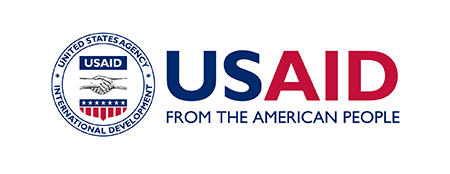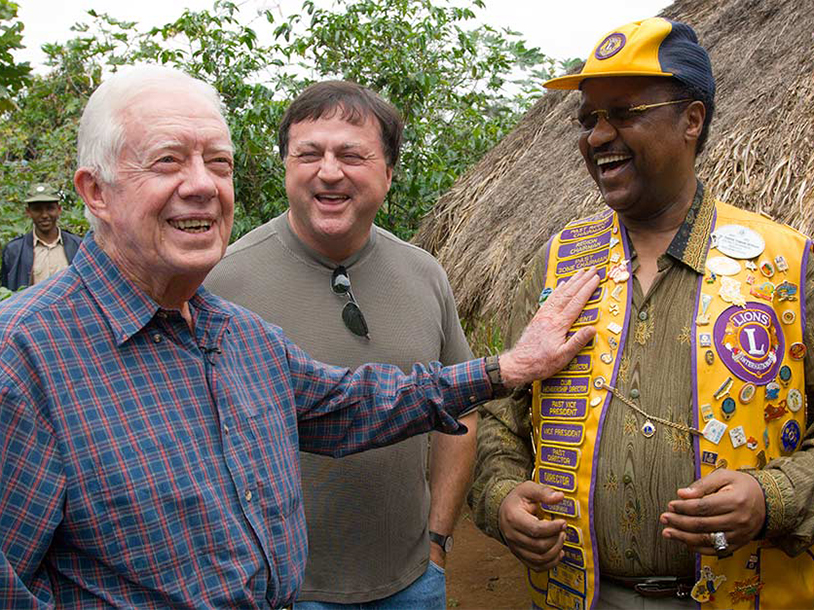
USAID Support for The Carter Center's River Blindness Elimination Efforts in the Americas
Featured October 2013
The Carter Center is proud to recognize the partnership of the United States Agency for International Development (USAID) for its Onchocerciasis Elimination Program of the Americas (OEPA). Since 2012, USAID has provided direct funding support to The Carter Center's OEPA program, together with additional funding for the program that is coordinated with the U.S. Centers for Disease Control and Prevention. This new pledge also complements other ongoing USAID support of The Carter Center's health and peace programs.
Onchocerciasis, commonly known as river blindness, is a parasitic disease carried by flies that breed in fast-moving rivers. Once in the body, the worms can lead to itching skin, impaired eyesight and even blindness. When the OEPA program was launched in 1993, an estimated 500,000 people in the Americas were at risk of river blindness in six countries: Brazil, Colombia, Ecuador, Guatemala, Mexico, and Venezuela. Today, as the result of highly successful national programs that used a strategy of twice per year community-wide administration of the medicine ivermectin (Mectizan®, donated by Merck), transmission has been broken in 96 percent of the region and no one need fear becoming blind from river blindness in the Americas. Mexico and Guatemala, formerly the region's two most endemic countries, have interrupted transmission of river blindness, halted Mectizan® treatment, and begun their post-treatment surveillance. Ecuador, having completed its three years of post-treatment surveillance, has filed a request to WHO for a verification team visit. Transmission remains only in the hard-to-reach border area between Venezuela and Brazil in Amazon rainforest.
USAID support for neglected tropical diseases (NTDs) focuses on the scale-up of efficient and sustained preventive chemotherapy in an integrated manner so that control of all and elimination of some of these diseases can be achieved. The U.S. Congress recognized the opportunity for the U.S. Government to make a significant impact on these diseases and created an NTD earmark in 2006. River blindness elimination from the Americas was a specific target set when the Global Health Initiative was established by President Obama in 2009, to consolidate the government's approach to global health problems. The U.S. Centers for Disease Control and Prevention has played a key technical partnership role in the OEPA program for many years.
The effort to wipe out river blindness from the Western Hemisphere would be impossible without key partnerships that include thousands of community-based volunteers, the ministries of health of the six endemic countries, the Pan American Health Organization (PAHO), Merck and the Mectizan® Donation Program, several universities in Latin America and the United States, and many generous donors.
The Carter Center is grateful for USAID's generous support, which will be used for the final efforts to interrupt transmission in the remaining endemic areas of Venezuela and Brazil, and to assist all countries to complete a surveillance period and prepare formal requests for PAHO/WHO to verify disease elimination.
Visit this partner's website:
USAID's Neglected Tropical Diseases Program
Please sign up below for important news about the work of The Carter Center and special event invitations.

Browse our archive of Carter Center featured partners »